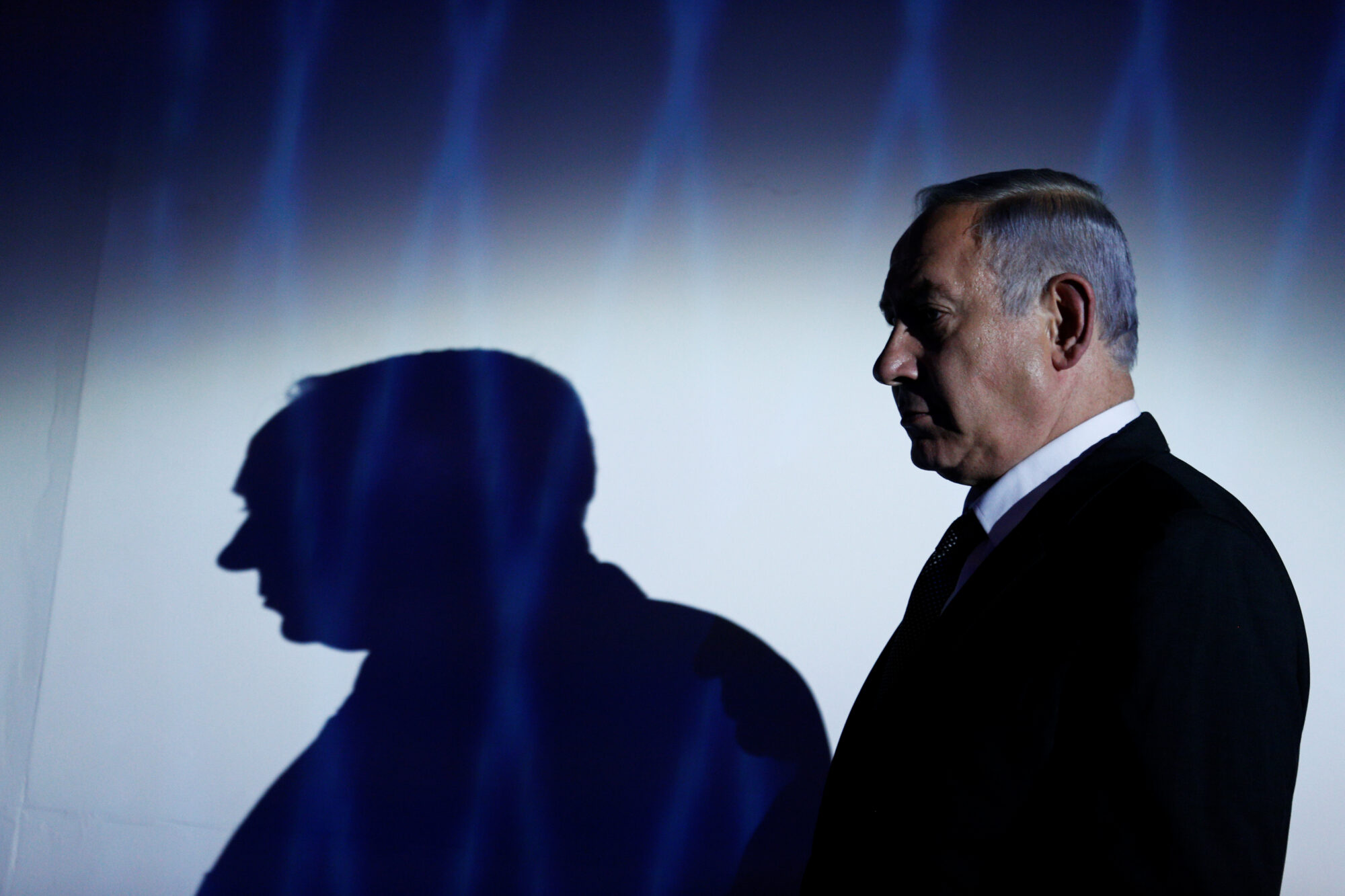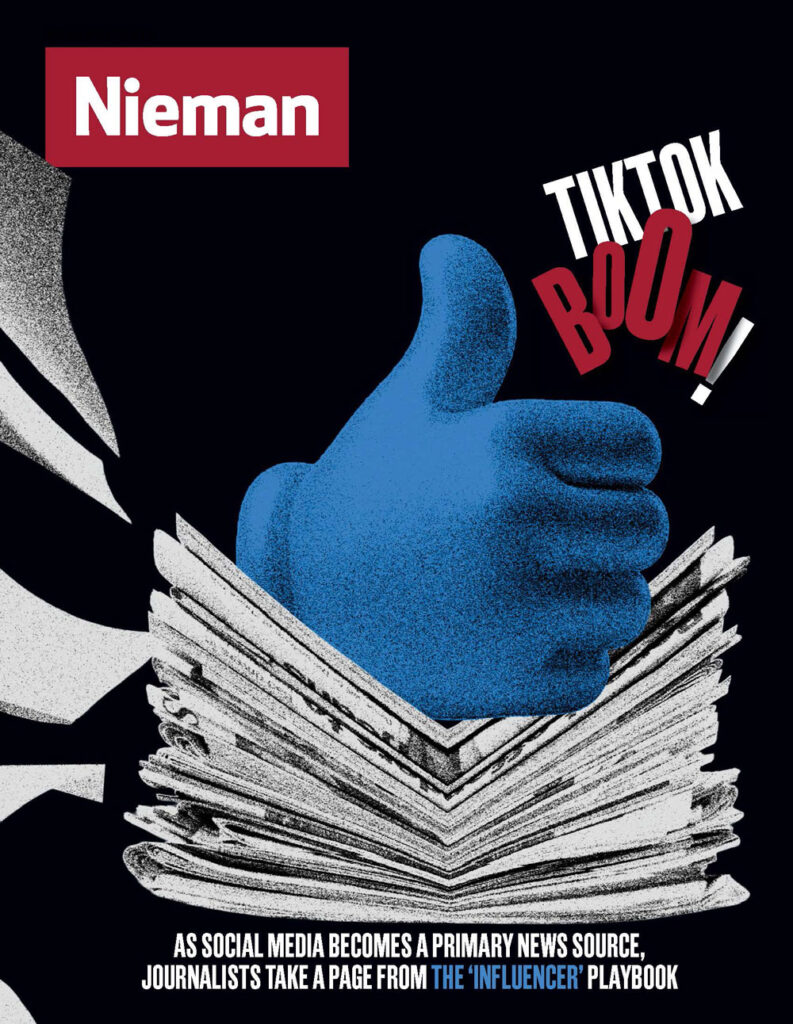In the early 1980s, Benjamin Netanyahu made a splash as a telegenic young diplomat in Washington and at the United Nations, out to shape international opinion on Israel with his silver tongue and fluent English. He was a regular on ABC’s “Nightline” and the Sunday morning news talk shows, and kept a meticulous list of the country’s media elites, whom he courted assiduously.
Forty years later, Netanyahu is Israel’s longest-serving prime minister, an embattled leader who has unleashed unprecedented levels of military force in Gaza and against Iran while simultaneously fighting corruption charges at home. And now, critics say, he seems determined not just to influence the news media but to try to control it.
Following a playbook similar to Donald Trump’s in the U.S. or Narendra Modi’s in India, Netanyahu’s government has banned or boycotted news organizations whose reporting he dislikes or denounces as a threat to national security, while elevating outlets that toe the official line. He wants to privatize Israel’s public broadcaster, which he accuses of not being “balanced enough,” and has tightly restricted journalists’ access to Gaza. He complains of a “deep state” at work against him, including the media, which he once likened in court to “Pravda.”
He’s gone after individual reporters, such as Raviv Drucker, one of Israel’s top investigative journalists and a 2003 Nieman Fellow. Drucker was first targeted a decade ago after breaking a story that led to one of the corruption cases for which Netanyahu is currently standing trial.
Related Posts
“No prime minister before Netanyahu ever mentioned journalists by name, but Netanyahu changed all the rules of the game,” says Drucker. “He named everyone, put us all on a political side … as if we are all activists set on toppling him who pretend to be professionals. We’ve gotten used to it now, but then, we were shocked.”
That was at the outset of what longtime media watchers describe as a systematic campaign by Netanyahu to undermine independent media since his party returned to power in 2015. His effort to suppress opposition and accountability journalism intensified in 2023, as the government tried to exert greater control over the courts — sparking months of the largest street protests in Israeli history — and, more recently, after Hamas’ devastating Oct. 7 attack.
Netanyahu’s far-right coalition has helped bolster the reach of the cable news station most loyal to its agenda, introduced legislation targeting prominent television news channels, banned Al Jazeera as a “mouthpiece for Hamas,” raided the organization’s offices, and boycotted Haaretz, Israel’s oldest daily newspaper.
“It’s a master plan to destroy the free media in Israel,” warns Anat Saragusti, who oversees press freedom issues at the Union of Journalists in Israel.
The prime minister’s office did not respond to requests for comment.
Israel’s Fox News
Besides attacking news organizations critical of his leadership, Netanyahu has steadily promoted outlets that parrot the government’s views, starting with the newspaper Israel Today, which was financed and founded in 2007 — reportedly at Netanyahu’s request — by Sheldon Adelson, the American billionaire casino magnate. Adelson’s Israeli-born widow is the paper’s publisher.
The couple has been well-known for funding right-wing candidates in the United States, most famously Trump. But they have also spent hundreds of millions of dollars helping to boost Netanyahu’s political ambitions.
Israel Today is distributed free in print and online, which has helped it surpass the competition, notably the daily Yediot Ahronoth, which Netanyahu has bemoaned for its critical coverage of him and his government. In one of the corruption cases against him, prosecutors allege that Netanyahu was so obsessed with his image in the media that he once offered Yediot Ahronoth’s owner a deal where the government would propose legislation to stymie Israel Today’s growth in exchange for more favorable coverage.
Since Adelson died in 2021, Israel Today has maintained its right-wing stance but is more critical of Netanyahu and his government than it was in the past. But the paper still mostly hews to the government line, whether by generally supporting its strategy in the Gaza war or downplaying settler violence in the West Bank. A 2020 University of Chicago study suggested that the newspaper’s impact was so deep that it played a significant role in shifting Israeli voters further rightward, helping to secure Netanyahu’s dominance of Israeli politics.
More recently, Netanyahu has helped transform an obscure Jewish heritage-themed cable station into a high-profile pro-government voice in the public conversation. Owned by Yitzchak Mirilashvili — whose billionaire father, Michael, immigrated to Israel and is one of its richest citizens — Channel 14 is best-known for defending and amplifying the messaging of the Netanyahu government. Yinon Magal, the pugnacious face of the station, once described himself as the prime minister’s willing “vessel.”
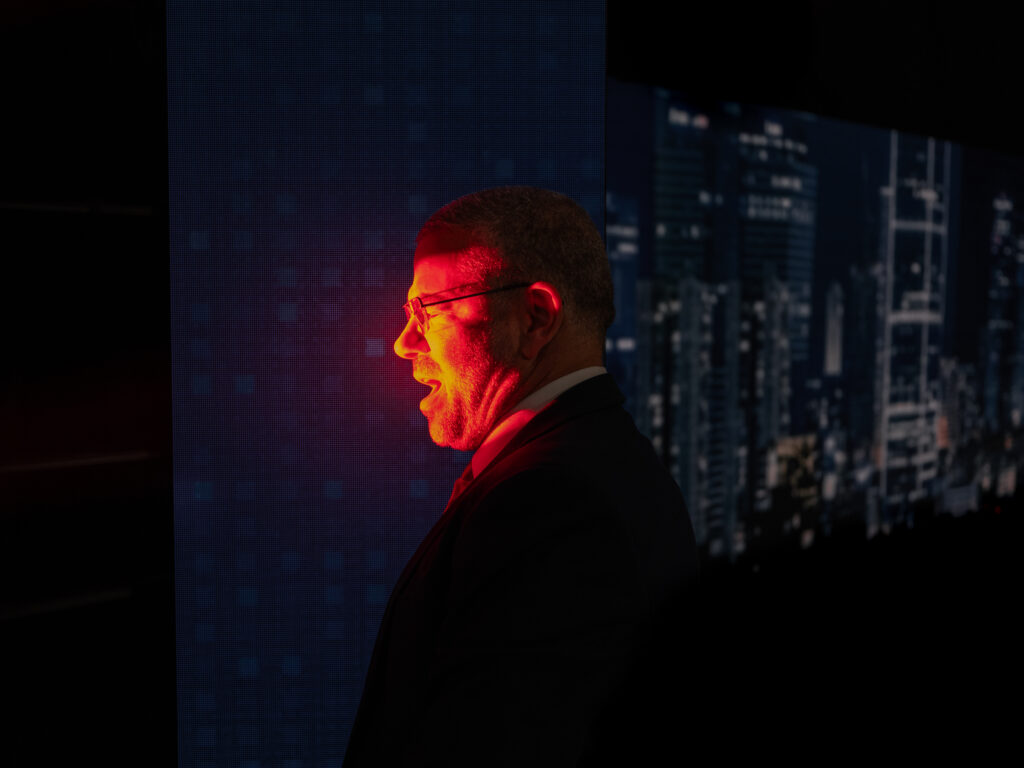
In recent years, Netanyahu has given almost all of his TV interviews to Channel 14, shutting out mainstream stations like Channel 12, Israel’s most popular news network. Channel 14 now ranks second.
Its rise was boosted by government advertising and official perks reportedly worth millions of dollars. In 2016, regulatory amendments allowed the previously heritage-only station to air more news broadcasts, while in 2018 it was exempted from obligations to invest in local production, which other major channels must obey. Channel 14 was also not subjected to guidelines on editorial balance and journalistic ethics, critics say.
“This makes it easier for them to operate and amplifies their voice in the public sphere as they routinely compare Channel 12 to Al Jazeera,” says Adam Shinhar, a law professor at Israel’s Reichman University.
Channel 14’s flagship nightly show, “The Patriots,” is hosted by Magal, a former anchor on Israel’s public broadcaster, whose stint as a right-wing lawmaker in Israel’s parliament was cut short by allegations of sexual harassment. (Magal was unavailable for comment.) The Seventh Eye, an investigative Israeli news site that covers media and freedom of the press, says Channel 14 “regularly broadcasts fake news, incitement to violence, and government propaganda.”
In May, three Israeli NGOs petitioned the Israeli Supreme Court to demand a criminal investigation into Channel 14 for what the groups allege are hundreds of statements aired on the channel during the Gaza war that amount to incitement to genocide, war crimes, and crimes against humanity.
Among the quotes cited in the suit, from commentators on the channel, are declarations that “Gaza as it exists today must be wiped out”; “we need to bomb indiscriminately”; “we’re coming to destroy you. D-E-S-T-R-O-Y. Destroy. Share this, spread the video clip so your friends know what we’re going to do to you”; and “the more humane solution is to starve them, OK?”
One way the channel echoes government messaging is through its coverage, or lack of coverage, of the plight of Israeli hostages in Gaza and the weekly, sometimes daily mass protests demanding their return. Channel 14 sticks to Netanyahu’s line that only continued military action will achieve the hostages’ release and Hamas’ eradication, eschewing the idea of a truce and an exchange of Israeli hostages for Palestinian prisoners. The channel’s journalists and guests have not only attacked those who support a hostage deal but also lashed out against some of the hostages’ families, according to Seventh Eye.
Channel 14 also amplifies Netanyahu’s message that the army and security services, rather than the government, bear full blame for the catastrophic intelligence failure that allowed the Oct. 7 attack to happen.
“Netanyahu has put disproportionate energy and time and effort” into swaying media coverage, says Tehilla Shwartz Altshuler, a senior fellow at the nonpartisan Israel Democracy Institute. “Very sadly, it’s kind of worked. And the bottom line is he has succeeded in controlling two media outlets” — Channel 14 and Israel Today.
To be sure, mainstream news organizations have continued to criticize Netanyahu’s handling of the hostage crisis and to question whether he has used the elusive goal of “total victory” over Hamas as a means of staying in power and putting off an official inquiry into the Oct. 7 attack. Hamas’ multipronged assault across the Gaza border, which killed about 1,200 people and took 251 hostage, was the deadliest attack on Israel since the Jewish state was founded in 1948.
But there has been little reporting or reflection on the devastating death toll and humanitarian situation in Gaza, where local health officials say over 52,000 people have been killed in the war. Israeli media outlets are “scared of a drop in their ratings or do not want to lose advertisers and viewers, so [they] have to toe a line of overall patriotism,” says Reichman University’s Shinhar.
On top of that is a strict regime of censorship of stories deemed harmful to national security, which critics say is broadly defined. In 2024, Israel’s military censor banned the publication of 1,635 stories and redacted material in another 6,265, the Israeli-Palestinian news outlet +972 Magazine reported in May. This was the highest incidence of intervention since the outlet began collecting such data in 2011.
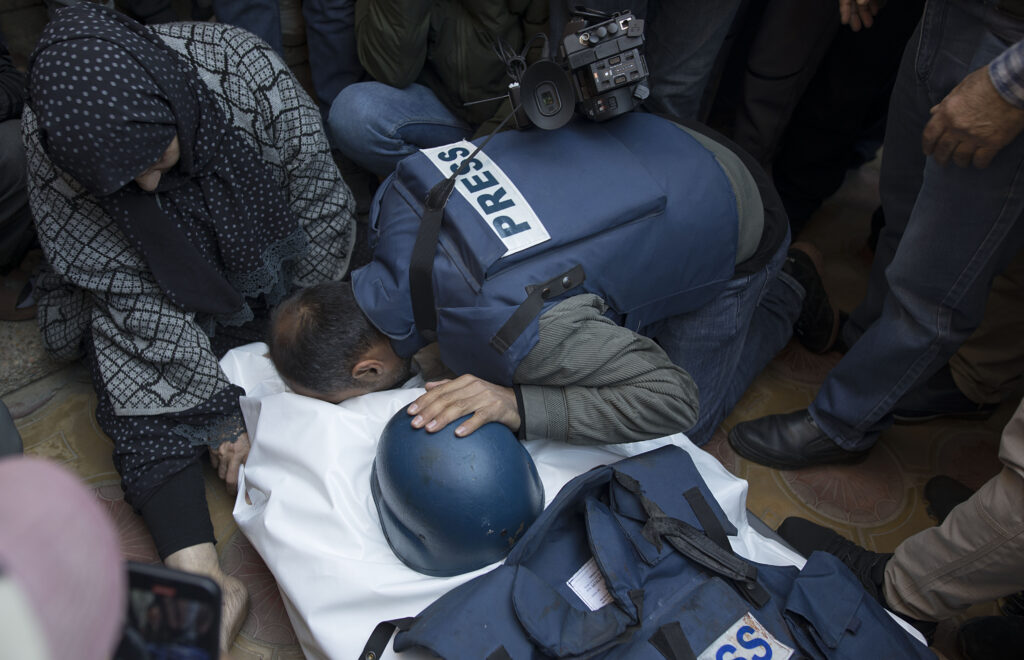
For Netanyahu, paying zealous attention to the media traces back to his younger days.
As a diplomat in the U.S., he courted not only the American press but also the Israeli journalists based there. Yediot Ahronoth profiled him in a splashy piece in its weekend magazine after he started dazzling many at the United Nations with his speeches soon after his appointment as ambassador to the U.N. in 1984. When he traveled home to Israel, he was known for making the rounds of newspaper offices, meeting with editors and reporters.
But upon returning from the U.N. and reinventing himself as an ambitious member of the right-wing Likud party, he was soon eyed warily by Israeli journalists, who were mistrustful of his nationalist politics wrapped in American-style polish and soundbites. Netanyahu had picked up fluent English during his teen years in suburban Philadelphia, where his father, a history professor, had found work.
“They hated him from Day 1, and he fought back in so many long-term, sophisticated ways,” says Altshuler.
One of those ways now is to bypass traditional news outlets, deftly using social media and loyalist outlets to speak directly to the country, especially his base. Another strategy has been to try to overhaul the media landscape through legislation.
Legislative Attack
When Netanyahu returned to power in January 2023 after a brief ouster, one of the first things his new communications minister, Shlomo Karhi, did was to roll out a plan to shake up the television market. Karhi is considered close not just to Netanyahu but also to his older son, Yair, a controversial figure who often takes the lead in online attacks against his father’s adversaries.
“The era of hyperactive regulation is over. Less intervention, more competition and freedom,” Karhi said in announcing his plans. “We will eliminate intervention in the business model, grow the advertising market, and encourage the opening of new content channels.”
The tactic was to “flood the zone” with bills, among them one that would give the government control of the TV ratings system. Currently, a widely trusted independent committee oversees ratings and, in turn, how much advertisers can be charged.
“The government wants to control it because then they can decide who gets public money for advertising. This would specifically benefit Channel 14, which aligns with Netanyahu’s worldview, politics, and ideology,” says Saragusti of the Union of Journalists in Israel.
Another bill aims to privatize Kan, the country’s public broadcaster, which Karhi complains has veered too far to the left. Karhi has declared that there’s “no place for public broadcasting” in Israel, claiming — erroneously — that there is no public broadcasting in the U.S.
Karhi’s office did not respond to requests for comment.
“Netanyahu wants two things now,” says Altshuler. “He wants Channel 14 to continue to thrive, which means giving it as many regulatory benefits as possible, but he also wants chaos in the media market so it’s on the defense all the time. He wants journalists to feel that the workplace is not secure.”
That includes trying to punish news outlets he doesn’t like.
Haaretz and Al Jazeera
I
n the crosshairs has been Haaretz newspaper, founded in 1919, two decades before Israel declared statehood, making it the country’s oldest publication. Israel’s paper of record and a left-wing bastion in an increasingly right-wing society, Haaretz has long been an outspoken critic of Netanyahu and his successive coalitions over the years.
Early in the Gaza war, Karhi wrote a Cabinet resolution calling for a government boycott of Haaretz, declaring it time to outlaw media organizations that were “helping the enemy by undermining public morale in wartime.”
The Justice Ministry blocked the resolution on grounds that it violated press freedom. But a few months later, Amos Schocken, the newspaper’s publisher and owner, made a highly controversial statement referring to Palestinian militants as “freedom fighters” — a statement that Haaretz’s editorial board rejected and Schocken himself walked back.
Karhi seized the opening to pursue the boycott, canceling government offices’ subscriptions and forbidding any government advertising. “The decision came in the wake of many articles that damaged the legitimacy of the State of Israel in the world and its right to self-defense,” Karhi said.
Shinhar at Reichman University says that Haaretz is being made an example of. “It sends a message to other newspapers that this might be what you could face if you criticize the government.”
Aluf Benn, the newspaper’s editor-in-chief, struck back in an op-ed piece headlined “Haaretz Will Not Be Silenced by Netanyahu.” He described how Haaretz reporters had rushed to cover the Oct. 7 attack, some barely escaping the massacre themselves or losing friends and relatives in the onslaught.
“We have never faced such an emotional and professional challenge in the newsroom. But despite the unprecedented difficulty, we had to stand by and fulfill our journalistic mission to report the broadest possible story about the war,” Benn wrote. That meant not just reporting the trauma in Israel, including the hostages’ plight, but what “was happening on the other side” in Gaza.
“We are not terrorized or terrified by Netanyahu’s threats and his efforts to delegitimize our journalism and strangle Haaretz financially. We will stick to our critical mission to stand for human and civil rights and to expose government wrongdoing and war crimes. This is our duty — even more so when Israel is at war.”
— Tehilla Shwartz Altshuler, senior fellow at the Israel Democracy Institute
“[He] wants chaos in the media market so it’s on the defense all the time. He wants journalists to feel that the workplace is not secure.”
Another news organization targeted by Netanyahu’s government is the influential Qatar-based Al Jazeera, the most widely broadcast news station in the Arab world. Netanyahu and members of his government have accused it of being a Hamas “mouthpiece.”
Al Jazeera has played an outsized role in war coverage inside Gaza, where international journalists have been barred from reporting except as embeds of the Israeli army, on the grounds that any other arrangement could harm national security. During these officially controlled visits, there is usually no opportunity to talk to residents or to independently verify claims made by either side.
Netanyahu’s government has sponsored and passed a so-called Al Jazeera Law stipulating that any foreign media organization in the country can be shut down if it poses a threat to security. The law also allows Israel to temporarily seize equipment on national security grounds. This is what happened to The Associated Press, after it provided images via a live video feed to Al Jazeera, one of its thousands of clients. The move was denounced by opposition leader Yair Lapid as an “an act of madness.”
Media Access to Gaza
The Committee to Protect Journalists and the Foreign Press Association, representing Israel-based foreign correspondents, have repeatedly called for media access to Gaza. The FPA has even gone to the Supreme Court to demand access, but the government has repeatedly asked for extensions in filing its response.
In an op-ed in Haaretz in May, the FPA renewed its call for Israel to lift what it called an “unprecedented media blockade.”
“These unprecedented restrictions have severely hindered independent reporting, robbing the world of a full picture of the situation in Gaza and placing an undue and dangerous burden on our Palestinian colleagues in the territory. These journalists have risked their lives to keep the world informed of this crucial story,” the FPA wrote previously.
The absence of foreign correspondents in Gaza has put even greater pressure on local reporters. By CPJ’s count, more than 160 journalists and media workers have been killed in Gaza since the beginning of the war.
Tania Kramer, Jerusalem-based correspondent for Deutsche Welle and chairperson of the FPA, says, “Palestinian journalists in Gaza have done a tremendous job during the war. These journalists have continued to work for international media, braving extremely difficult conditions to continue reporting, the likes of which few veteran war reporters have experienced. They faced the constant threat of Israeli bombardment and had a hard time moving around in an extremely dangerous environment.”
Many of the reporters are themselves victims of Israel’s devastating military campaign, Kramer notes. “They were displaced, often living in tents without sufficient basic supplies or any support for their work, and they had to care for their families. Some have lost family members and colleagues. So in many ways they often had to report on what they essentially experienced themselves.”
Attack on Channel 13 — and Raviv Drucker
Inside Israel, independent media have begun banding together to fight back against the Netanyahu government’s efforts to undermine or muzzle them.
Last summer, Israeli journalists rallied against the decision by Channel 13 to cancel the news program “Warzone,” the station’s most popular show, hosted by investigative journalist Drucker, who has uncovered several of the most damning Netanyahu-related scandals over the years. The channel’s stated reason was that it wanted to put a non-news show in that time slot.
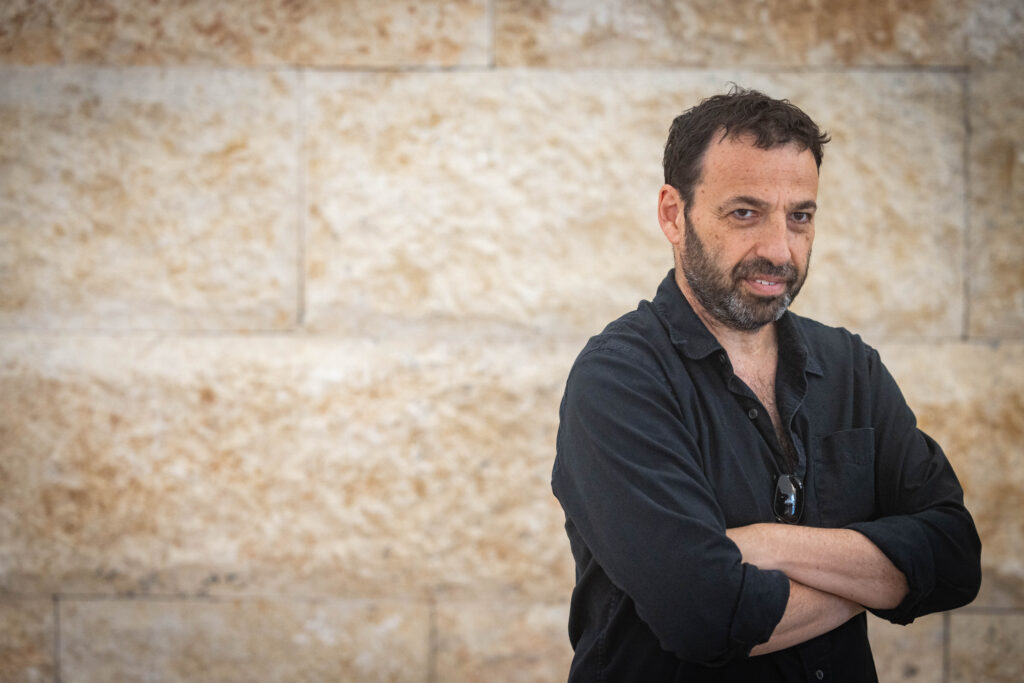
The cancellation — which the channel later reversed, citing the ongoing Gaza war and need for extra coverage — came after Yulia Shamalov-Berkovich, a Netanyahu ally and former lawmaker from his Likud party, was appointed to head Channel 13’s news division, despite having no journalism experience. The channel itself was bought years earlier at Netanyahu’s behest by another Israeli oligarch, Len Blavatnik, a Ukraine-born billionaire.
Under the banner “Emergency Conference to Save Channel 13,” journalists from across platforms came together to protest “Warzone’s” cancellation and Shamalov-Berkovich’s appointment as news director, which they characterized as a de facto political takeover of the station. The Union of Journalists in Israel and the Channel 13 employees’ committee have petitioned the Supreme Court to review the legality of Shamalov-Berkovich’s appointment.
“Our biggest enemy is the feeling that we’re up against a powerful, sophisticated monster, that we are no match for it, and that there is no point to the struggle,” Drucker told the crowd at the protest in support of his canceled show.
In an interview, Drucker said Netanyahu had broken the unspoken rule that government figures should not boycott or shun specific journalists. Drucker and others have gradually found themselves frozen out of interviews and briefings with officials. The situation has become so dire that Drucker says neither he nor his Channel 13 colleagues get any inside access to the prime minister’s office.
“I was not very friendly with [Ariel] Sharon or [Ehud] Olmert,” says Drucker, referring to previous Israeli premiers, “but their offices cooperated and briefed me, even if they did not give me scoops.”
The most recent of Drucker’s Netanyahu-related coups was to co-produce the documentary film “The Bibi Files,” which contains videos showing Netanyahu, his wife Sara, and his son Yair undergoing police questioning over corruption charges. Screenings in Israel have been blocked because of privacy laws regarding the publication of police interrogations.
Netanyahu’s office sent letters to the attorney general and the police demanding that they open a criminal investigation against Drucker, which they have not done.
Drucker says the attacks by Netanyahu don’t deter him. But he is concerned that the silencing tactics might affect others, whether journalists or members of the public.
“Those who do speak out are accused of not being patriotic enough or helping the enemy,” he says.
Saragusti of the Union of Journalists in Israel is likewise concerned: “When journalists come to cover events, whether in live broadcasts or otherwise, you see people inciting against them, cursing at them, shouting at and intimidating them. … Even if all the [government’s media] legislation is not passed, you will have investigative journalists who will say, ‘I don’t want to go into this minefield.’”
Although Netanyahu’s campaign against the media gets less attention from the public than his government’s attempts to overhaul the courts, it can be seen as part of the same effort to push Israel toward autocracy, critics say.
Israel’s main media players “understand that this is a blueprint,” says Saragusti. Recently, top editors from rival mainstream news organizations gathered on Zoom to compare notes and discuss how best to fight back against the government’s coordinated attack on independent journalism.
“They see something much bigger than this or that piece of legislation and so they work together,” Saragusti says. “They understand they have to show some kind of solidarity.”
Dina Kraft, a 2012 Nieman Fellow, is the Israel correspondent for The Christian Science Monitor, and former opinion editor at Haaretz’s English edition.
